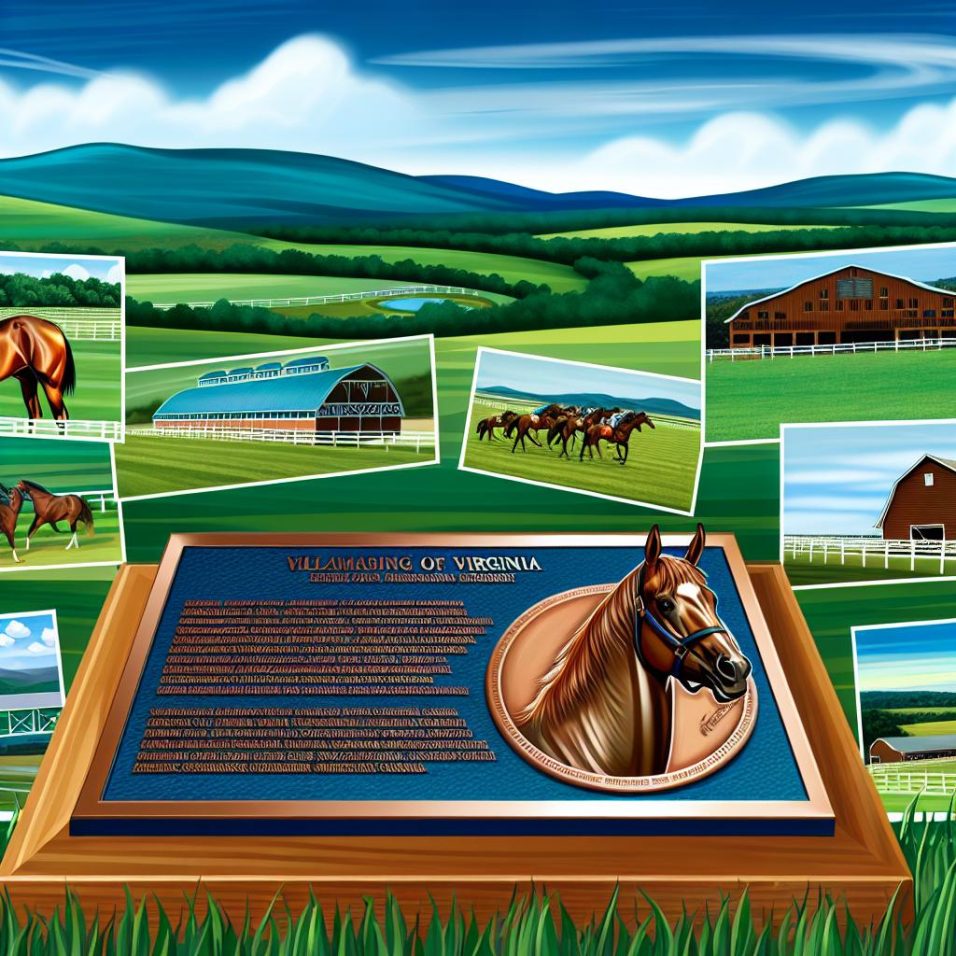A Historical Overview of Virginia’s Status in Horse Racing
Virginia, with its lush landscapes and rich history, has made an exceptional mark in the world of horse racing. This state’s contribution to the equestrian world is not merely confined to racing events; it extends to the very breeding and nurturing of some of the most iconic racehorses in history. This article provides an overview of Virginia’s legacy in breeding formidable racehorses and highlights key figures that have brought this state to the forefront of horse racing.
Secretariat: A Legend Born in Doswell
Secretariat remains one of the most revered names in horse racing, not only for his achievements on the track but also for his roots in Virginia, which is a testimony to the stellar breeding practices in the state. His birth at Meadow Stud in 1970 marked the beginning of an extraordinary journey. Secretariat’s lineage, combining Bold Ruler and Somethingroyal, promised speed and endurance, two qualities that would define his racing career. His performance in the Triple Crown of 1973 set new standards; his records in the Kentucky Derby, Preakness Stakes, and Belmont Stakes are testament to his unmatched capabilities. Notably, his Belmont Stakes victory by 31 lengths is still celebrated as one of the greatest displays of racing prowess.
The Importance of Sir Barton’s Early Success
Before Secretariat dazzled the world with his thrilling races, Sir Barton had already etched Virginia’s name in the annals of racing history. Sir Barton was the first horse to win the Triple Crown, accomplishing this milestone in 1919, a feat that cemented the foundation for future champions. Despite a humble start to his racing career, Sir Barton quickly proved to be a prodigious talent, dominating the Kentucky Derby, Preakness Stakes, and Belmont Stakes with remarkable efficiency, all within the span of 32 days. His achievements set a benchmark for excellence and demonstrated the quality of horses bred in Virginia.
Native Dancer: Virginia’s “Gray Ghost”
Another significant figure emerging from Virginia’s equestrian landscape is Native Dancer. Born in 1950, this racehorse garnered fame for his nearly flawless racing record. Known affectionately as the “Gray Ghost,” Native Dancer’s career was marked by 21 wins out of 22 races, his only defeat coming in the 1953 Kentucky Derby where he placed second. Native Dancer’s breeding at Sagamore Farm in Virginia was a testament to the profound impact that meticulous breeding could have. His distinctive gray coat and remarkable racing style captivated audiences and added to Virginia’s impressive lineage of racehorses.
The Breed and Beyond: Continuing Virginia’s Legacy
Virginia’s reputation in horse breeding is no accident; it is the result of strategic breeding practices, favorable natural conditions, and the expertise of seasoned breeders. The state’s equine industry benefits from a mild climate and fertile soil, which together create the ideal environment for breeding and nurturing thoroughbreds. Breeders in Virginia have consistently produced horses that excel on the national and international stage, perpetuating the state’s standing within the racing community.
Breeding Facilities and Practices
The quality of Virginia-bred racehorses begins with the foundations laid at breeding facilities spread across the state. These facilities are equipped with advanced resources and adopt cutting-edge breeding techniques to ensure the health and performance potential of their horses. Horse care in Virginia prioritizes not only genetic traits but also the physical and psychological well-being of the horses. The involvement of experienced trainers and veterinarians contributes to crafting champions who represent the pinnacle of equine potential.
Economic and Cultural Impact
The horse racing industry in Virginia is not just an entertainment sport; it forms a significant part of the state’s economy and culture. Hosting multiple racing events throughout the year, including those at Colonial Downs racetrack, horse racing continues to draw substantial attention. Furthermore, Virginia’s commitment to the industry is evident in its investment in breeding programs and efforts to improve infrastructure related to racing and equestrian activities.
Preservation and Promotion of Heritage
Maintaining the rich legacy of horse racing in Virginia involves actively preserving its history and promoting its heritage. This includes celebrating and studying past champions, as well as educating future generations about the state’s contributions to horse racing. Efforts to document the histories of famous racehorses and the farms responsible for their upbringing are key to ensuring that Virginia’s contributions continue to be recognized and revered.
Conclusion: A Timeless Legacy
The narrative of Virginia’s horse racing legacy is one marked by celebrated achievements and continues to evolve as breeders and trainers innovate and aspire towards new heights. The storied careers of horses like Secretariat, Sir Barton, and Native Dancer serve as enduring examples of Virginia’s impact on the sport. Thus horse racing remains deeply intertwined with the cultural and economic fabric of the state. For enthusiasts and scholars alike, Virginia’s racehorse breeding legacy offers a wealth of knowledge and inspiration, highlighting the importance of diligent breeding practices and the quest for excellence in equestrian competitions. Each horse bred in Virginia carries with it a piece of the state’s rich heritage, a testament to Virginia’s ongoing influence in the magnificent world of horse racing.


